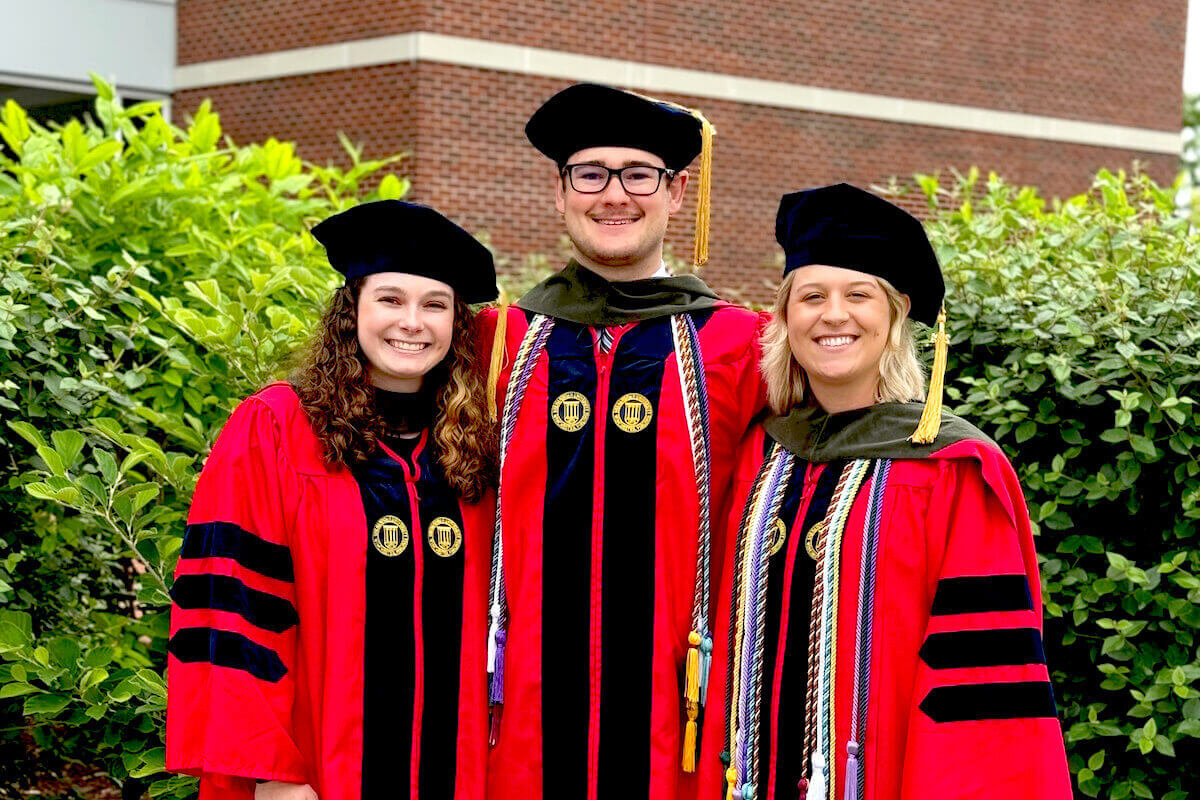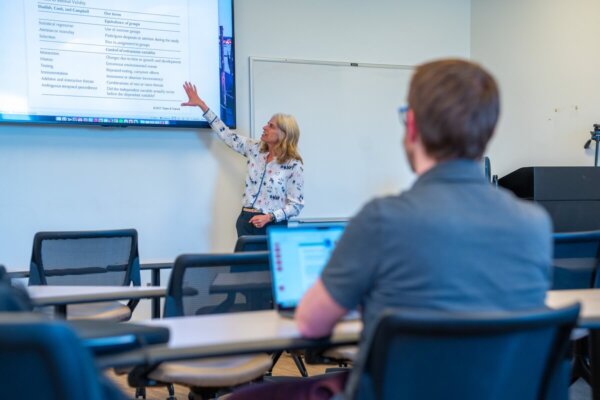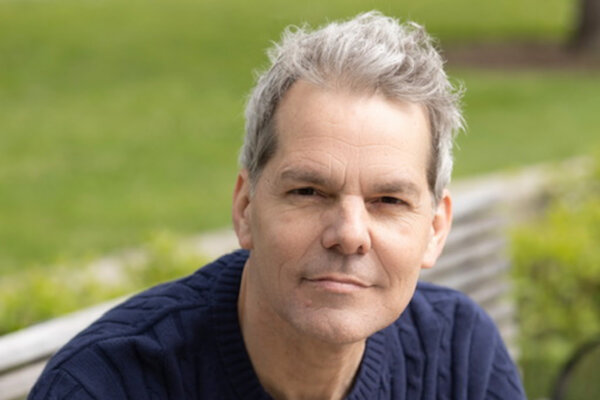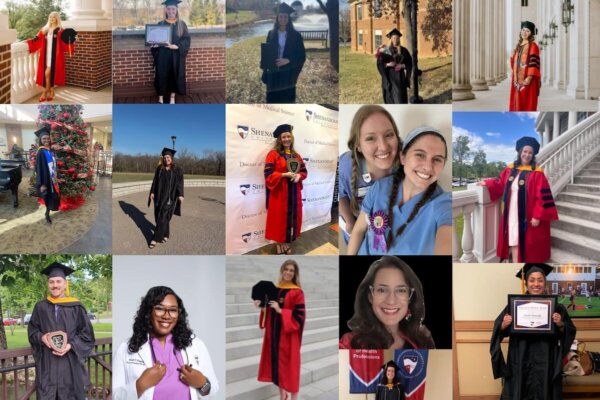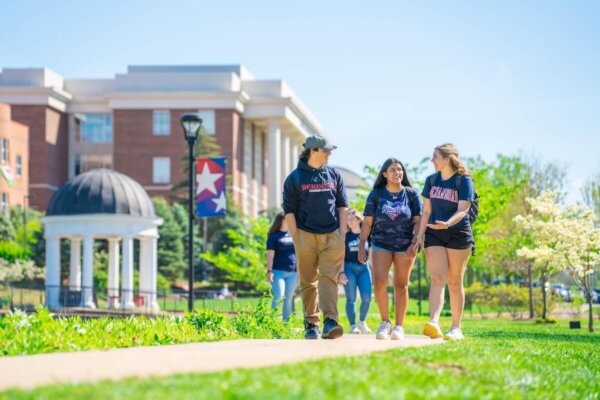Learning Business From Within
Shenandoah Students Perform Work That Benefits Businesses
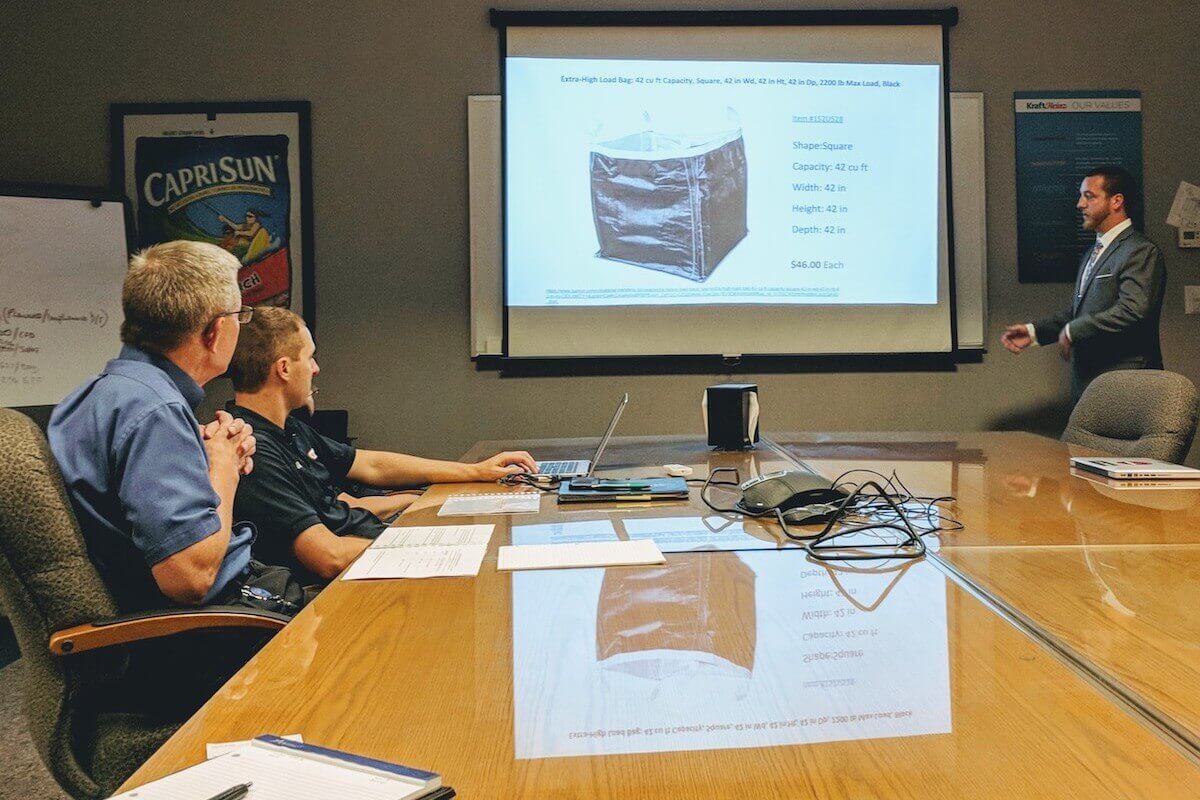
At Shenandoah University’s Harry F. Byrd, Jr. School of Business, students learn by doing, which often means their classwork involves assisting an array of businesses.
Professor of Marketing Sally Kim, Ph.D., said that in recent years, students have worked on projects for firms that include Firefly Cafe in Winchester, Virginia; LALO (Let Art Live On); Sign Here; and Front Royal, Virginia’s Randolph-Macon Academy. The students involved were enrolled in either an undergraduate marketing and research course or a graduate-level marketing management and strategy course, Dr. Kim explained to those gathered for a Encore Elite Partners (EEP) Strategies for Success Marketing Summit held at the end of February at the the Byrd School.
Theory into practice
The idea behind experiential learning is to turn theory learned in class into practice, said Byrd School Assistant Dean of Student Affairs Fritz Polite, Ph.D., who has led student groups on trips to work at three consecutive College Football Playoff National Championship games, the 2019 Seoul National Marathon and the 2018 Winter Olympics (both in South Korea), and Super Bowl 53.
Dr. Polite also oversees the Leadership and Mentoring Program (LAMP) in which students paired with professionals receive one-to-one experiences in their chosen fields. The ultimate goal, Polite said, is “to place a student in a career.” Two LAMP students spoke at the EEP event, with one noting that his mentor has inspired him to follow in his footsteps as a development director. Another talked about how working with his mentor gave him hands-on experience with events and a deeper insight into sports marketing and promotions.
Outside of the mentoring sphere, students can also work on projects like the ones Kim mentioned. The process of bringing students in on a project is fairly simple. Kim said she will meet with an interested business before the semester begins, and create project guidelines for the business to review. Once the guidelines are approved, the business talks to the class, which splits into groups that work on the chosen project a bit at a time. Students conclude their work with both an oral presentation and a written report, she said.
It’s a win-win process, Kim said. It’s good for the students, and it also allows businesses to pick the students’ brains.
Internships make a difference
Students in the business school also gain experience while assisting local businesses through internships. Internships are 120 hours for three credits for undergraduates (juniors and seniors) and 150 hours for three credits for graduate students, said Associate Professor of Business and Director of Internships Giles Jackson, Ph.D.
The Byrd school usually places roughly 15 interns with businesses each semester (spring, summer and fall) for 12 weeks at a time, Dr. Jackson said. Aside from performing work at a business, internship students must also write weekly reflection papers in which they share a learning experience that occurred that week, how it connects to what they’ve covered in their classes, and what the experience taught them. Research shows that students get more out of an experience if they reflect on it, Jackson said. The process also allows students to observe decision-making and learn how to be less impetuous when they become managers in the future.
Real job experience
EEP Producer, Owner and Founder Nancy Craun said she’s worked with many interns and noted that the students need to be given clear objectives and empowered to complete tasks; micromanaging doesn’t work. These students are looking for real job experience. “I’m doing it because I love giving back and I love these kids and their ideas,” she said. Jackson agreed that students need challenges, managerial exposure, and variability in their internship work.
And, the internship process works well for all involved. “It’s hard for me to think of an internship that didn’t work out, to be honest,” Jackson said. Sometimes, an internship essentially serves as a long interview for an employer, who then makes a job offer when the internship is complete. This, Jackson said, is the ideal situation.
Other business-student connections can occur in the entrepreneurial sphere. Assistant Professor of Management Montressa Washington, Ph.D., who co-directs the university’s Institute for Entrepreneurship, said she is a trained management consultant who knows how to provide students with the training they need to get deliverables that benefit entrepreneurs – marketing and/or social media plans, focus groups, etc. – out the door.
Students & professors available to help varied, unique clientele
She said the business school meets with interested clients in a fashion just like she would with a client for a consulting engagement. Businesses talk about their needs, and it’s determined if projects will require a semester, a year, or more. Her students are currently helping two clients, one of which is the Warren County Fair. Nationally, county fairs are in trouble, and “we are helping WCF to reinvent itself,” she said. The fair is interested in using virtual reality technology to help people remember what it’s like to be at a fair. Shenandoah is home to the Shenandoah Center for Immersive Technology and is launching virtual reality design degrees this fall.
While businesses often want to utilize student skills and provide students with learning opportunities, professors are also welcome to work on projects to benefit businesses. Currently, three professors (Washington; Assistant Professor of Information System Technology Christine Custis, Ph.D.; and Assistant Professor of Quantitative Methods and Supply Chain Management Orkun Baycik, Ph.D.) are using their expertise to assist Massanutten Resort, a four-season resort in McGaheysville, Virginia. The project is being led by Jackson, who is spearheading the effort to tie classroom learning more closely with commercial practice. “This is a priority for our accreditation body, AACSB, and also for our incoming dean, Dr. Astrid Sheil,” Jackson said.
Top-performing students who have proven themselves in hands-on classroom assignments are eligible to apply to work on bespoke consulting projects led by faculty. For example, Jackson is leading a team of students working for Quantum Sails, a key player in the 52 Super Series, the world’s most established grand prix monohull yacht racing circuit, sponsored by Rolex.
Connect with the Harry F. Byrd, Jr. School of Business
Businesses interested in working with Harry F. Byrd, Jr. School of Business students or professors may contact Giles Jackson at gjackson@su.edu.
